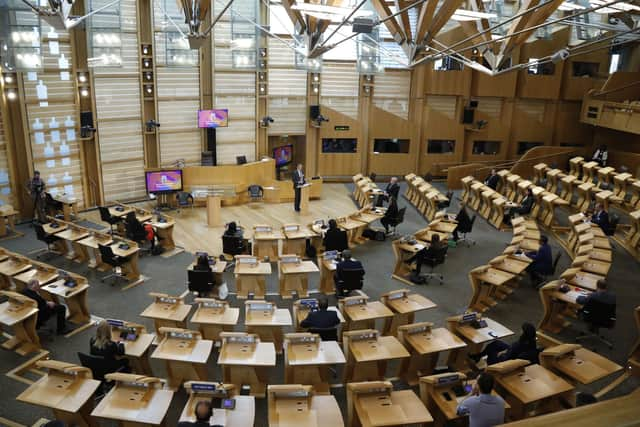Scottish Parliament voting reform: Holyrood's closed list system gives parties too much power and protects MSPs voters want to sack – Scotsman comment
In the US, reverence for the “Founding Fathers” and the Constitution – always with a capital C – borders on the religious. Scotland’s more youthful parliament should not be as precious when thinking about ways to improve the state of our democracy.
Speaking at an Edinburgh University event on reforming Holyrood, two formerly leading lights of the SNP and Labour, respectively Alex Neil and Johann Lamont, strongly criticised the proportional list system used to elect 56 out of the total of 129 MSPs.
Advertisement
Hide AdAdvertisement
Hide AdHolyrood’s founding principles of “openness, transparency, accountability and sharing power” had been “completely eroded”, said Neil, who argued the list system should be replaced by the single transferable vote (STV) version of proportional representation. Lamont pointed out that the “complete break in connection between being an elected member and the needs of your constituents” gave parties too much control over politicians.
Over-long in power
This has become a more obvious problem because of the SNP’s 17 years in power, with some backbench MSPs acting like ministers’ adoring fans, punting softball questions while cheering and jeering at appropriate moments. This is no recipe for effective scrutiny of legislation, and it shows. The Conservatives’ 14 years in office, under the first-past-the-post system, appears to have had the opposite result with infighting seemingly more important than anything else.
Holyrood's ‘closed list’ means parties, not the electorate, get to decide which candidates are likely to be elected; an open list would give voters the ultimate say. STV, in which voters rank candidates in multi-member constituencies, would also restore power to the people. Both should be considered.


Of course, this will alarm under-performing MSPs and ministers ensconced at the top of party lists, safe from judgment at the ballot box, but it’s supposed to. Effective means to hold our elected representatives accountable is vital if government is to function well.
Lamont spoke of a “cosiness, and a glibness and a laziness” in the Scottish Parliament “that we're paying a heavy price for”. Some may treat such comments from a former MSP as sour grapes but, with Holyrood stacked with has-beens, never-should-have-beens and might-be-somedays, the lack of talent is a real problem.
Comments
Want to join the conversation? Please or to comment on this article.
